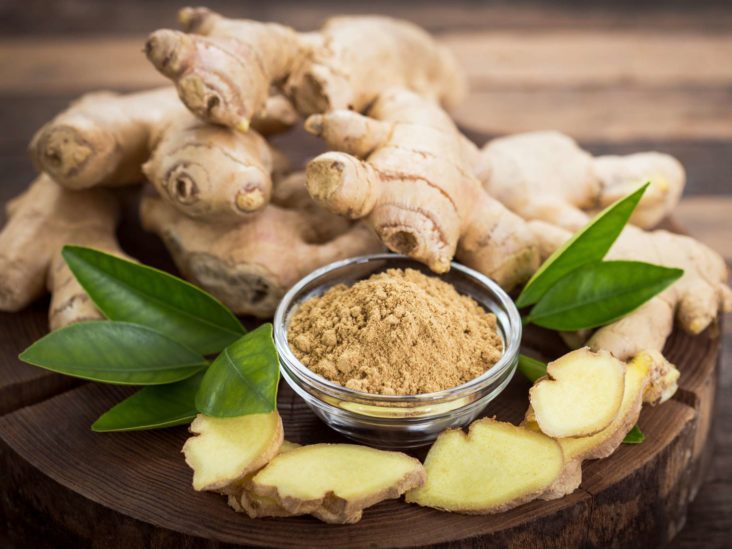By Faith Mudoga,
Ginger root is one magical, healthy and delicious spice. Some call it a spice while others prefer to call it a herb.
Ginger has been commonly used for centuries to solve simple problems like stomach upsets, cold and flu symptoms, muscle pain, menstruation cramps, and skin burns.
People still consider ginger a natural way to soothe an upset stomach, and there’s research to back up its health benefits.
Ginger can help you lose weight
Studies have shown that ginger can greatly aid in weight loss. When it’s combined with other plant extracts ginger mostly taken as tea or a detox drink assists in weight management.
Ginger stimulates digestion, and suppresses your appetite and this two factors greatly come in handy if you’re struggling to lose weight.
As much as some consider ginger as a magic pill when it comes to loosing weight, other aspects of lifestyle must be observed like eating a balanced and healthy diet.
Helps in preventing morning sickness
One 2018 study found that moms-to-be who consumed 1g of fresh ginger root per day for four days experienced a significant decrease in nausea and vomiting and no risk for the mother or her future baby.
Gloria Naliaka a first time pregnant young lady confirms that ginger drink has been her savior during this times. “I was introduced to it by my aunt when I went to the village. Since then my morning sickness symptoms have greatly reduced.”
Soothes an upset stomach.
For a while ginger has been known to help in relieving stomach problems like bloating and irritation. Ginger has been associated to a variety of digestive advantages, including working on portions of the GI tract that cause nausea, stomach discomfort, and vomiting.
If you are experiencing digestion problems try ginger drink. As much as it helps with all this other stomach problems, it can’t prevent food poisoning. Contact your physician in case you need urgent medical attention.
It can reduce your risk of diabetes.
In Kenya, the prevalence of diabetes is estimated to be 3.3%. It is a huge problem to very many Kenyans who are suffering from it.
Some active components in ginger have been related to improvements in insulin and metabolism, according to research. If you’re at risk for diabetes, incorporate ginger smoothies, veggie-based stir-fries, and soups, keep both dried and fresh ginger on hand.
Boosts Immune system
Ginger has Gingerol which is an antioxidant-rich substance that can assist your immune system. So try incorporating this spice into your meals.
It’s a natural way to relieve period pain.
The findings of all the studies done on ginger’s pain-relieving abilities suggest that it helps the most with menstruation discomfort. If you also take ginger tea during this time of the month it can reduce nausea.
It may not reduce the pain a hundred percent especially for those who have severe ones but it can reduce the intensity.
It may aid in the prevention of heart disease.
A 2019 analysis indicated that ginger can help lower blood pressure and lower blood lipids (fats), both of which can help prevent heart disease, and a 2016 evaluation connected regular ginger consumption to lower cholesterol and blood sugar levels when compared to a placebo.
Ginger’s anti-inflammatory components can also help to lower the risk of chronic disease.
It’s an anti-inflammatory.
Ginger contains antioxidant-like compounds called phytonutrients that have been proven to have the ability to reduce cell damage.
The secret to harnessing this compound is to add ginger to already healthy, nutrient-dense meals. By lowering cell-signaling activity, the root can help prevent inflammation from developing.
It may lower your risk of cancer.
“Ginger has the ability to help sensitize tumors to treatments like chemo and radiation. The cell-protecting properties of ginger can lower the long-term risk of certain cancers. That’s because the spice and other flavorings may reduce cellular activity that causes DNA changes, cell death, and proliferation of cancer cells.” Said Dr Berg.
Negative side effects
Some negative side effects have been associated with ginger. Heartburn, diarrhea, burping, and overall stomach pain are all possible adverse effects. The danger of negative effects increases when you take higher amounts of 5 grams per day. When used on the skin, when consumed for a short period of time, ginger may be considered safe. Some people may get skin discomfort as a result of it.
Conclusion
While ginger’s not a cure-all for any chronic disease, using it regularly with loads of other spices and plant-based foods can help benefit health overall.





























